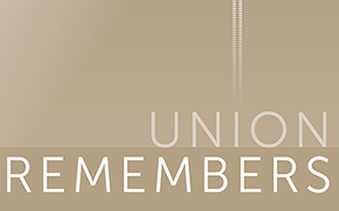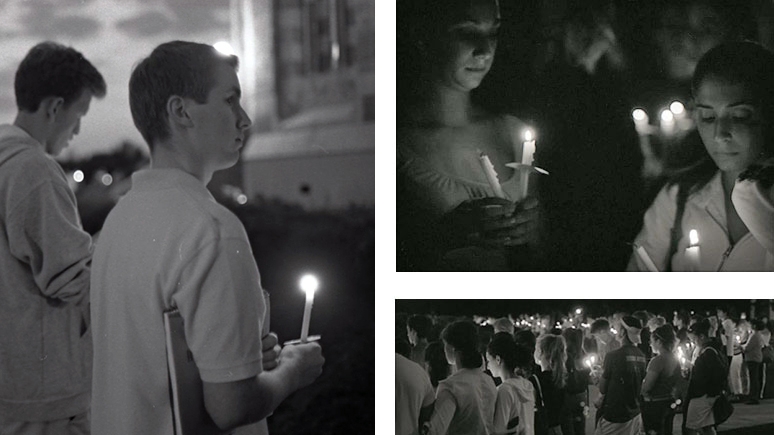On Tuesday evening, Sept. 4, 2001, the campus community gathered in Memorial Chapel for opening convocation, a celebration to kick off the College's 207th year.
Discussing the Plan for Union, a strategic blueprint for the school, President Roger Hull said, "Our essential aim is to cultivate and nourish in our students the knowledge, intellectual skills and habits of mind they must have if they are to succeed as active, self-aware and critical members of the complex world they will inherit."
Exactly one week later, students, faculty and staff somberly returned to Memorial Chapel for an impromptu prayer service: America was under attack.
"We had the Cold War and Vietnam," Byron Nichols, professor of political science, remarked following the 20-minute service, which was punctuated by sobs. "But for this generation of students, this is the moment they lost their political innocence."
For today's students, 9/11 is history learned in a classroom or from a Netflix documentary. Yet for many others, the scene on campus 20 years ago is a memory that will never fade.
"There was an eerie stillness on campus that day," Viki Brooks, then the campus Protestant minister, recalled on the 10th anniversary of 9/11. "It was as if people were frozen, attentive to the screens and the looping clips of the destruction of the towers."
The academic year was barely a week old on that clear, bright Tuesday morning. Five classes were underway and the campus was just starting to awaken when the first hijacked plane struck the north tower of the World Trade Center in Manhattan at 8:46 a.m. Seventeen minutes later, at 9:03 a.m., a second hijacked plane crashed into the south tower.
As the enormity of the tragedy unfolded, students and staff headed to the Nott Memorial, Reamer Campus Center and the Humanities lounge to monitor the grim television news reports.
Images of the towers collapsing and dazed New Yorkers on the streets bathed in pinkish-gray dust overwhelmed many. Counselors and campus chaplains offered comfort.
Students from the Middle East, particularly Muslims, felt uneasy. Others reassured them that they would be okay.
Afternoon classes were canceled.
At lunchtime, nearly 150 people filed into Memorial Chapel for a hastily organized prayer service officiated by Brooks. Brad Lewis, an economics professor, read from the poet Ann Weems' "Psalms of Lament" about grief, pain and loss.
Staff from the Becker Career Center and College Relations began tracking down alumni who may have been in harm's way.
President Hull was meeting with a prominent donor in Boston when the first planes struck the World Trade Center. He returned to campus, and that night, he stood with students and staff who had gathered outside the campus center to share their shock and sadness about the day's events.
A year later, the campus community again gathered in Memorial Chapel on the first anniversary of 9/11.
"It's not often the Chapel is filled," Hull recalled recently. "It was filled."
That night, Hull told the audience he hoped the tragic events would ignite a new spirit in the country.
"Nurture that spirit," he said. "Develop further a solid core of values. Resolve to make those values a foundation that will serve you throughout your lives. Act on those values for your benefit and the benefit of your communities and country. That is the best and most lasting tribute that we can pay those whose lives were lost on Sept.11."
Afterward, students, faculty and staff placed 3,000 tiny red, white and blue flags on the lawn near the Nott Memorial to honor the victims of 9/11, including the handful who had a connection to Union.

